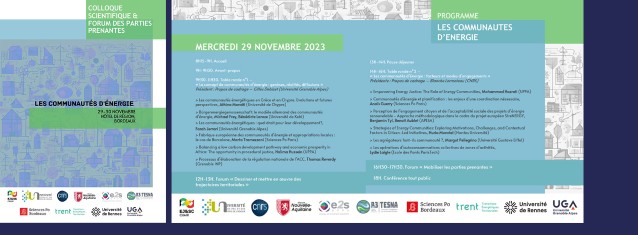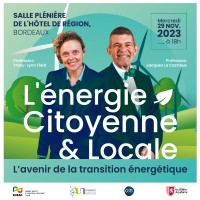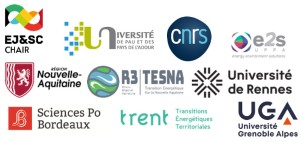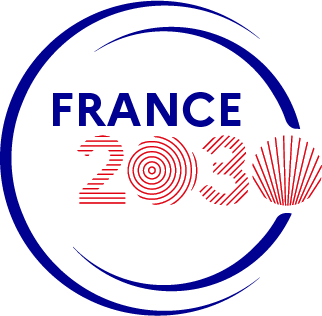
Energy communities
In 2018, European Union law created the concepts of renewable energy communities and citizen energy communities. The primary objective of these communities is to provide environmental, economic or social benefits to their shareholders, members or local territories rather than to generate financial profits.
They can therefore
- produce, consume, store and sell renewable energy;
- share the renewable energy produced by the production units they own;
- access all relevant energy markets.
In France, most of the measures have been taken up in the March 10, 2023 law on accelerating the production of renewable energies. This law specifies the official forms that energy communities can take.
While certain categories were already allowed in these communities (citizens, local authorities, SMEs in particular), several categories have been added, such as local semi-public companies. However, a number of legal aspects remain to be clarified.
A dedicated scientific symposium
The University of Pau and Pays de l’Adour / National Research Center CNRS (hub E2S UPPA EnSuITE and chaire Energy Justice & the Social Contract), the TESNA Regional Research Network, Sciences Po Bordeaux (chaire TRENT), l'Université Grenoble Alpes (UMR Pacte) and l'Université de Rennes (UMR IODE), in partnership with the Nouvelle-Aquitaine, are co-organizing a scientific symposium and forums dedicated to energy communities in Bordeaux on November 29 and 30, 2023.
Theme
The challenges of energy transition have led to the emergence of new social dynamics to produce energy on a local scale. This phenomenon has not gone unnoticed by public authorities, who have sought to build a coherent legal framework to enable its development.
Today, we are witnessing a multiplication and diversification of local energy communities. This can be observed in many European Union member states. The result is complexity. This is reflected in the diversity of terminologies used to designate these energy communities (“citizen energy communities,” “renewable energy communities”), and in the diversity of financing and governance models. This complex subject can only be fully understood and analyzed through an interdisciplinary approach.
Highlights of the symposium
 WEDNESDAY, NOVEMBER 29
WEDNESDAY, NOVEMBER 29
- 9:00 am: Introduction
- 9:30am-11:30am: Round table 1 - The concept of energy communities: origins, realities, dissemination
- 12:00-13:00: Forum - Designing and implementing territorial trajectories
- 2:00-4:00 pm: Round Table 2 - Energy communities: factors and modes of commitment
- 16h30-17h30: Forum - Mobilizing stakeholders
- 6:00 pm: Public conference - Citizen and local energy, the future of the energy transition (registration required)
THURSDAY, NOVEMBER 30, 2023
- 9:00-11:00: Round table 3 - Energy communities: the diversity of models
- 11:00am: Restitution and conclusion
- 11:30 a.m.-1:00 p.m.: Forum - Experience feedback
Registration and full program: https://tree.univ-pau.fr/fr/publications-colloques/colloques-conferences/les-communautes-d-energie.html

